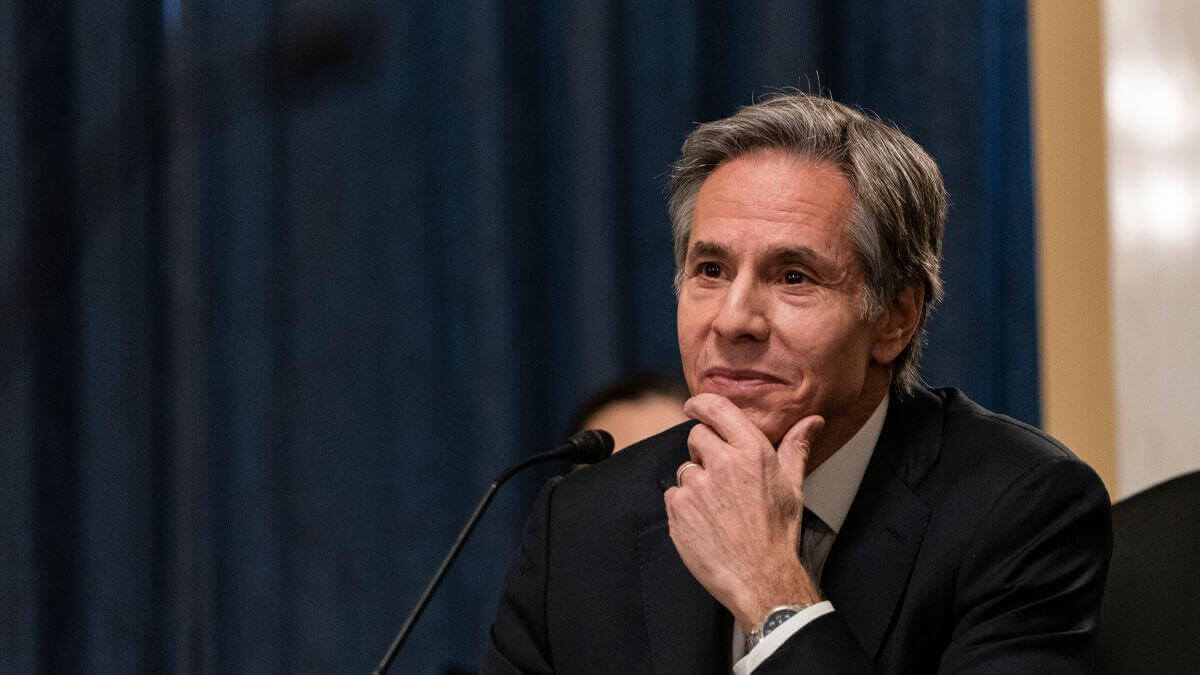On Friday, United States (US) Secretary of State Antony Blinken announced that President Joe Biden had revoked Executive Order 13928 on “Blocking Property of Certain Persons Associated with the International Criminal Court (ICC)”, which was imposed by his predecessor Donald Trump in June 2020.
The Trump administration imposed sanctions on all ICC employees involved in an investigation into war crimes committed by the Taliban, the Afghan government, and US troops in Afghanistan between 2003 and 2014. The restrictions involved blocking their assets and their entry into the US, and even extended to the family members of ICC officials.
In September, the punitive measures were extended to include Chief Prosecutor Fatou Bensouda and Phakiso Mochochoko, the head of the ICC’s Jurisdiction, Complementarity and Cooperation Division.
The US is not a signatory of the ICC and its Rome Statute, and does not acknowledge its authority over American citizens. In fact, Blinken’s predecessor, Mike Pompeo, previously called the ICC a kangaroo court, while Trump’s Secretary of Defence Mark Esper said that US “armed forces will never appear before the ICC, and nor will they ever be subjected to the judgments of unaccountable international bodies”. Likewise, National Security Adviser Robert O’Brien said that the US was capable of conducting its own internal investigations.
At the time, the ICC responded by criticising the US’ “unacceptable attempt to interfere with the rule of law” by aiming to ‘influence’ the “actions of ICC officials”.
Its decision was also denounced by 72 members of the United Nations (UN), who came together to issue a joint declaration that expressed their “unwavering support” for the ICC. Among the signatories were key US allies such as Canada, Australia, France, and the United Kingdom (UK), demonstrating just how controversial the Trump administration’s decision was.
Since the inauguration of Biden, however, Washington has made repeated overtures to rebuild alliances and reaffirm its trust in multilateralism, which is believed to have informed its decision to revoke Trump’s executive order.
This has not yet translated into the US to join the ICC or ratify the Rome Statute. Nevertheless, in his statement, Blinken did say that the measures taken by the Trump administration were “inappropriate and ineffective”. He wrote: “We continue to disagree strongly with the ICC’s actions relating to the Afghanistan and Palestinian situations. We maintain our longstanding objection to the Court’s efforts to assert jurisdiction over personnel of non-States Parties such as the United States and Israel. We believe, however, that our concerns about these cases would be better addressed through engagement with all stakeholders in the ICC process rather than through the imposition of sanctions.”
The decision was welcomed by the ICC, whose President of the Assembly of States Parties, Silvia Fernández de Gurmendi, expressed hope that this “signals the start of a new phase of our common undertaking to fight against impunity for war crimes”. She added that the withdrawal of sanctions “strengthening the work of the Court and […] promoting a rules-based international order.”
Likewise, UN Secretary-General António Guterres’ spokesperson, Stéphane Dujarric, also welcomed the revocation of Trump’s executive order, before adding, “The International Criminal Court plays an important role in advancing accountability for international crimes.”
The Biden administration’s decision has led to some hope that Washington could join the ICC, particularly in light of the fact that the US rejoined the UN Human Rights Council in February. However, just in March, Blinken and State Department spokesperson Ned Price expressed their ‘disappointment’ at the ICC’s decision to “target Israel unfairly” and said that the ICC has “no jurisdiction”. Therefore, in spite of last week’s reconciliatory measure, it is generally expected that there is likely to be no overall shift in the US’ position on the ICC.
Despite Revoking Trump-Era Sanctions on ICC Officials, Biden Continues Opposition to Court
In spite of last week’s reconciliatory measure, it is generally expected that there is likely to be no overall shift in the US’ position on the ICC.
April 6, 2021

IMAGE SOURCE: ALEX EDELMAN / GETTY IMAGESUnited States Secretary of State Antony Blinken
